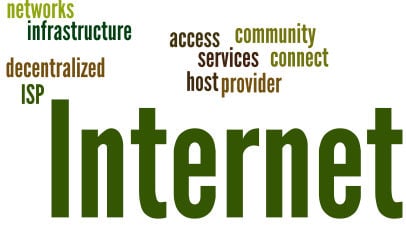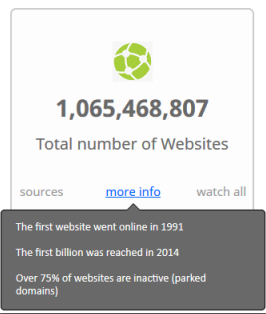The Internet is generally defined as a global network connecting millions of computers. More than 190 countries are linked into exchanges of data, news and opinions.
The Internet is Decentralized
Unlike online services, which are centrally controlled, by design, the Internet is decentralized. Each Internet computer, called a host, is independent. Operators can choose which Internet services to use and which local services to make available to the global community. Remarkably, this anarchy by design works exceedingly well. There are a variety of ways to access the Internet. Most online services offer access to some Internet services. It is also possible to gain access through a commercial Internet Service Provider (ISP).

Is Web and Internet the Same?
The Internet is not synonymous with World Wide Web. The Internet is a massive network of networks, a networking infrastructure. It connects millions of computers together globally, forming a network in which any computer can communicate with any other computer as long as they are both connected to the Internet. The World Wide Web, or simply Web, is a way of accessing information over the medium of the Internet. It is an information-sharing model that is built on top of the Internet.
Recommended Reading: The Difference Between the Internet and World Wide Web.

Who Owns the Internet?
No one actually owns the Internet, and no single person or organization controls the Internet in its entirety. The Internet is more of a concept than an actual tangible entity, and it relies on a physical infrastructure that connects networks to other networks.
Number of Worldwide Users
According to Internet Live Stats, as of August 12, 2016 there was an estimated 3,432,809,100 Internet users worldwide. The number of Internet users represents nearly 40 percent of the world’s population. The largest number of Internet users by country is China, followed by the United States and India.
In September 2014, the total number of websites with a unique hostname online exceeded 1 billion. This is an increase from one website (info.cern.ch) in 1991. The first billion Internet users worldwide was reached in 2005.

